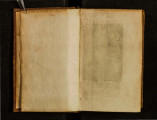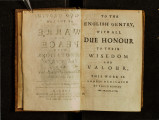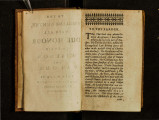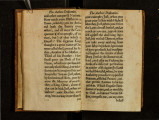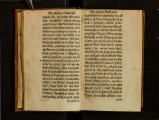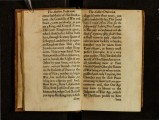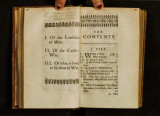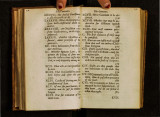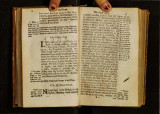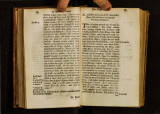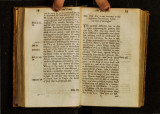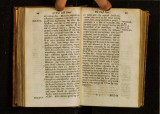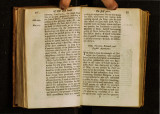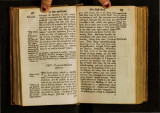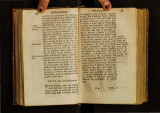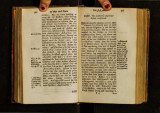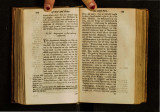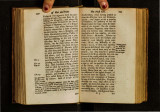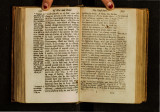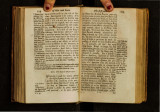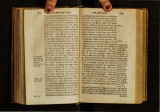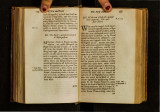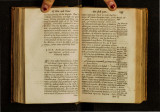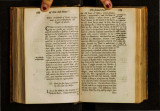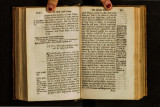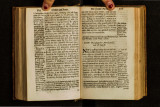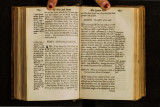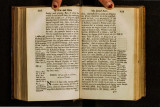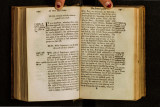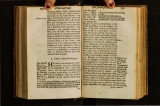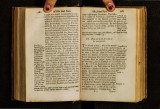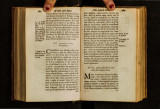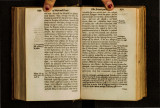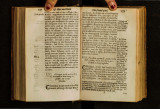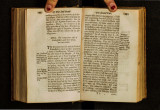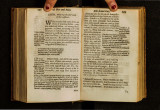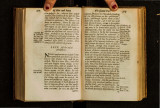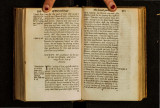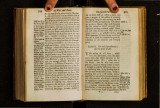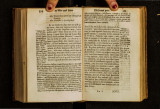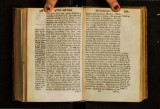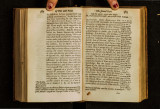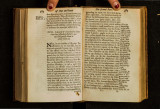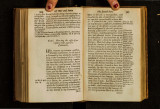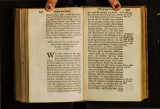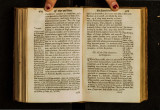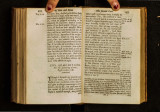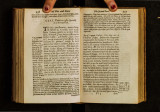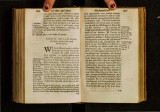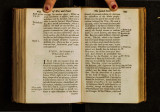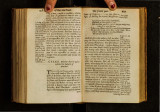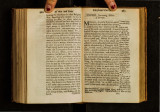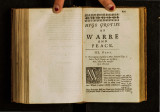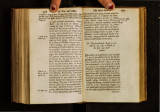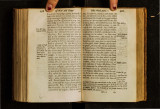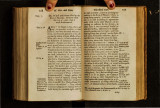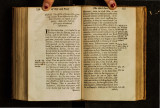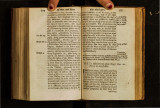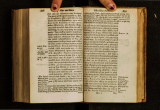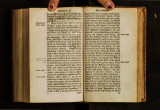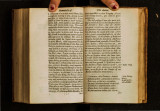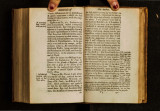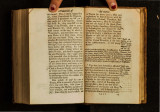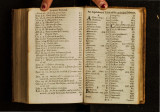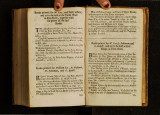| OCR Text |
Show of Wu anti Pe~ce p'rof\table, is now added to the caufes C)f · puni.thing. XC IV. Caufes of freeing one from punifhment of Law. THe Caufes of freeing orle from punifbmem of Law are wont to be either incriniecal , br extrinfecal. lntrinfe· cal, when the puni!Jlment, if notunjufi, yet is hard , being compared with the fact Extrin(ecal, from iome merit or othet thing commending the perfon ; or alfo,from good hope of him for the f~ture; whiCh kind of -cntfe will be then molt fufficienc, if the re~.ion of a Law, at leafi particularly , ceafe in the prefent faCt. for although , to fuHein the efficacy of the Law,. the univerfal reafon be enough, where no Contrary reafon is ; yet, eve.tl the particular reafon ceafing , the Law may more eafily and with leis diminution ht Muir a td , of authority be di!"penfed with t. This is anc rem uu. 11 1. l . h ~ 1r l . h ~ia congdiit mou ~ ua m t ole ~rrenccs , w 11c are Grar:nn. cau::: commmcd through tgnorance , though fa. x. qu. 7· not without all fault, or vincible; but · by reaJon of the rninds infirmity, not ea· fily vincible.Upon which offences a Chri{ l:ian Ruler of men ought t.J look witlt a gentle eye , in imitation of God, who ln . the o!d Covenant indeed required many fevH. 1-. &. r. fitch to be expiated with certain Sacri· 1-uc. :z. ~. 3 4• fices : but in the n:w , by words. and by ~·:Lb i ·rS'·P·· examples hath tef.hfied, that h( ~s ready tO · 11u fec~na to f7tant pardon of fuch to thofe that re~ Pe;:t And tnJly , that Thto4ojins * was x T~m. ~· IJ; ·i ndu·e ' d by thoie· wor ds 0 f Ch ·a p "'H•ftonam , .(ln ' a- vide ~pud Zo·. ther forgive them, thf) Jtno!l' not what naram. they do , to forgive the · e/lntiochians , is noted by }oannes (hryfoftomus. And . hence appears. ho w .11 1 F eraJm: ~n. du s,r 'a ,rr. Ltb.x.c.,.,. quius faid, a jufl: caufe of di(penfin~, that is, .of loofing one from th~ Law , 1s only that of whic;h ~he Author. of the Law be- ing confulted would have faid, it was ~e-fide his meaning, that it fhould be obfer .. ved. For he diftingulfheth oot between the equitable ... _imerp~e~a.ti.oo of t~e Law, ,. imn'Mic. and the relaxatwn of 1t. Whence m ano- L'b J •• h d h rr'h d 1 • J, c. 2.p4 "" ther place h~ repre en et ~.j omM an cap. 46, SIJtus for faymg , The Law bmdeth, al-though th~ caufe particularly ceafeth :as if.they had thought the Law to ~e the le~-. ter alone · which never came mto thetr minde.All Relaxation of the Law, which may oft be given and omitted freely, is fo far from equity properly fo call'd ; . that neither that relaxation which is due euher out of charity or juflice , can be referred thither. For , to take a-way the Law ei-ther on probable or urgent cau[e , is one thino ·another, to declare the faC\: not to haver, been comprehended in the mind of the Law f1o~ the beginpi~g. · XCV. |




